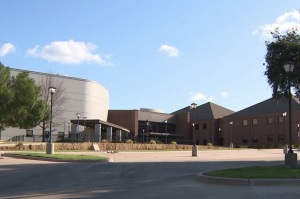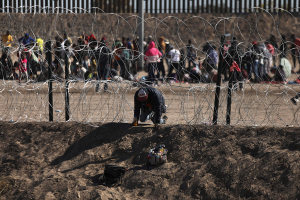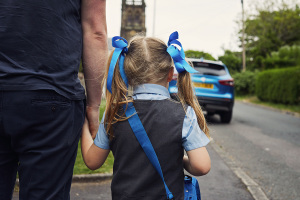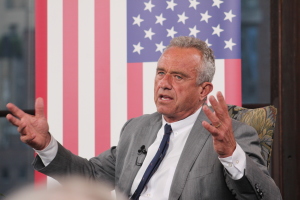Angola visit: the task of healing
"The foundations for building a lasting peace are steadfast love, faithfulness and, most of all, righteousness and justice," Rev. Dr Konrad Raiser told worshippers at an ecumenical worship service in a Luanda stadium on 12 October.
Speaking to the assembled members of all the World Council of Churches (WCC) member church congregations in Luanda, the WCC general secretary focussed on "Healing the Land", the theme of a 7-16 October WCC visit to Angola.
"In Angola, the land has suffered along with the people," Raiser said in his sermon. "War action and land mines have disfigured the land as they have destroyed people's lives. The land is being despoiled of its riches, but the people are deprived of the true benefits."
"When those in public authority enjoy the confidence of the people, when they uphold justice and defend human rights, then peace can grow and the wounds of the land can be healed," Raiser stressed.
The 10-day visit to Angola by a WCC delegation began on 7 October with meetings in Luanda with the Council of Christian Churches in Angola (CICA) and leaders of Angola's WCC member churches, a visit to the annual meeting of the Western Conference of the United Methodist Church, and evening meals shared with the leadership of the Interchurch Committee for Peace (COIEPA) and of Lutheran World Service.
Next on the programme was a two-day trip to Huambo and Benguela provinces. In Huambo, the delegation visited a transit camp for displaced people, and a seminary where three WCC member churches train their future pastors. In Lobito, the delegation attended a seminar on "Healing the Land"; a second, day-long seminar on this same theme was scheduled to take place later, in Luanda.
Returning to the capital on 10 October, the delegation met with a large gathering of young people, and received from them a message from Angolan Christian youth. The message refers to AIDS, lack of educational and employment opportunities and, more generally, to extreme poverty among young people. It describes the plight of displaced people and orphans, and the increase of delinquency and prostitution in Angola's villages and small towns.
The message reports on what CICA's Youth Desk is doing "to help young people overcome trauma, promote forgiveness and tolerance, introducing them to a culture of non-violence in the light of the Decade to Overcome Violence, launched in our country in May 2002". It acknowledges that what has been done so far is "a drop of water in the ocean", but affirms that, as "the driving force of any society", Angola's young Christians are determined to take part in the task of "psycho-physical rehabilitation", restoration of infrastructure and national reconciliation .
Another message, from church leaders, was delivered to Raiser at the 12 October ecumenical service in Luanda. It asks in particular for ecumenical assistance in resettling displaced people, in the struggle against HIV/AIDS, and with regard to the enormous challenges in the area of education and training.
"Angola, whom you love and have been supporting, has made meaningful progress towards peace," the message says. "The guns have been silenced, and we are working for the consolidation of peace. We acknowledge that it is not an easy task, but we are encouraged by the results already achieved."
Healing as transformation
In his many encounters with church leaders throughout the visit, Raiser spoke of healing as a process of transformation in stages. For the WCC general secretary, Angola, as it emerges from four decades of civil conflict, is presently in the second of a four-stage healing process that begins with emergency assistance, continues with consolidation then re-convalescence and, finally, ends with rehabilitation.
Speaking at the 13 October seminar in Luanda, Raiser suggested that, for Angola, the second phase of healing means consolidating peace. Peace cannot be taken for granted, he said. "The virus of division, suspicion and fear is still present", and it is important to learn how not to respond to the threat of violence by violence.
In the next phase - re-convalescence - the main aim will be to empower young people, since over 50 percent of the population are under 25. Angola's youth have known only "broken promises and the brutality of the struggle for power". How then can they "practise faithfulness"? "Healing the land calls for patient efforts of moral formation, planting the seeds of a new consciousness of values into the hearts and minds of the people of the land," Raiser reflected.
It is in the fourth phase - rehabilitation - that changes in public culture become critical, he said. Angola will need to change from a culture where public funds are handled in secrecy to a culture of transparency and accountability of those who exercise power. And healing requires a just distribution of the country's wealth rather than massive injections of outside resources.
What role for the churches?
In a country with more than 500 years of Christian presence - the longest in Africa - and, proportionately, its largest Christian population (90%), Angola's churches "are best placed to promote these processes of transforming a culture of violence into a culture of peaceful settlement of conflicts", perhaps "by opening the way to a spirituality of forgiveness", Raiser said. But, he added, "in order to become credible agents of peace, reconciliation and forgiveness, the churches must engage in acts of reconciliation among themselves". (His comments were made at a 15 October public meeting with church leaders, diplomats, politicians and civil society representatives, at which Raiser lectured on "Peace-making in Africa - a Challenge for Ecumenism".)
Gathering at the 13 October seminar in Luanda, Angolan church leaders discussed how their churches can contribute to healing, the immediate priorities in this process, and strategies and visions for the future. Reporting on their deliberations, they emphasized the need to work for church unity, and said that churches should develop a spirit of dialogue, spread Christ's message of peace, and work to physically and mentally dis-arm their people. Integration of internally displaced people, clearing land mines, combatting AIDS, poverty, violence, delinquency, prostitution, illiteracy and tribalism are all urgent needs, the leaders told the WCC delegation.
Another important role for the churches and ecumenical organizations was mentioned by political leaders representing the country's three main political formations - the MPLA, UNITA and the FNLA - whom the WCC delegation met during its last two days: that of preparing the people for elections expected in 2005, and election monitoring. "Churches can play a decisive role in voter education and education for democracy," Raiser agreed.
On its last day in Angola, the WCC delegation was received by President Eduardo do Santos. The president referred to earlier links between the Council and Angola, and appealed to the WCC to continue supporting his country. The establishment of a new political and social order requires building a new consciousness among the people, but lack of education and widespread illiteracy will be a serious barrier in this task, he said. The president also stressed the urgent need for training, and expressed appreciation for the crucial role churches played in education.
"The overall impression is less bleak than I expected," was Raiser's comment on his return from Angola. "In fact, there is a hopeful and energetic atmosphere among the people; they are confident that the peace agreement will hold this time." Confirming this impression, Rev. Dr André Karamaga, WCC programme executive for Africa, who was part of the WCC delegation, said: "In six months, the faces have changed. There is hope now!"




























